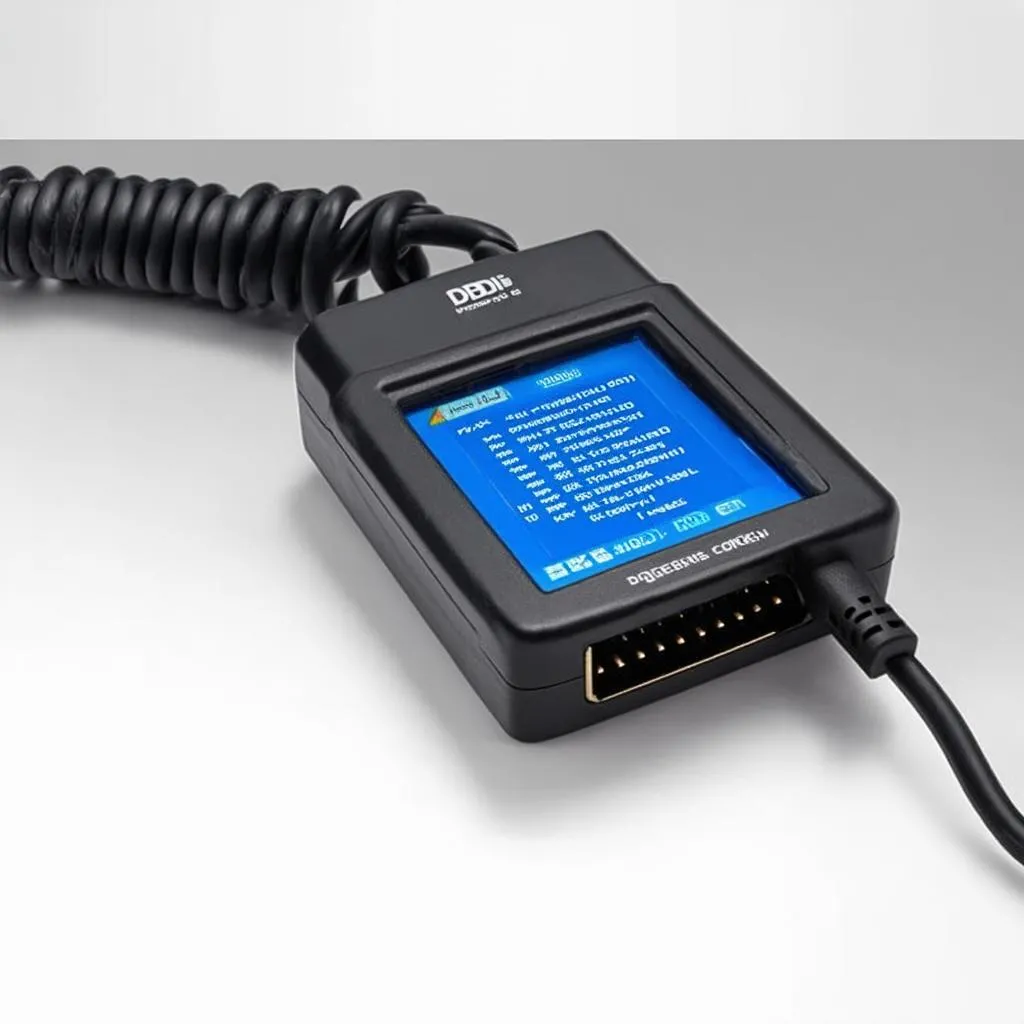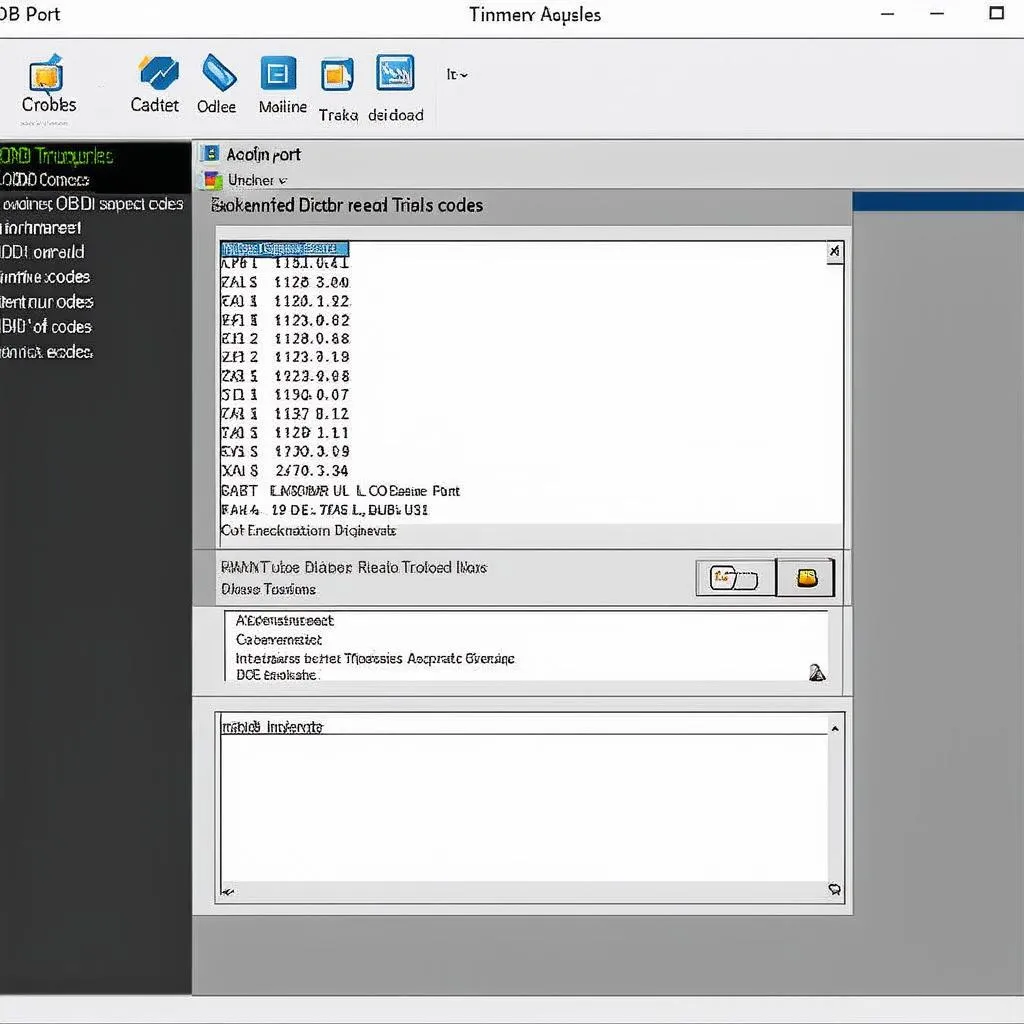Have you ever felt like your Mitsubishi was talking to you in a language you didn’t understand? Those error codes flashing on your dashboard can be a real head-scratcher! It’s like your car is saying, “Hey, I’m not feeling well, but I can only communicate in this cryptic code.” Well, fear not, fellow car enthusiast! The world of Mitsubishi Obd is not as mysterious as it might seem. In this comprehensive guide, we’ll decipher the language of your Mitsubishi and give you the tools to understand what’s going on beneath the hood.
What is Mitsubishi OBD?
Let’s start with the basics. OBD stands for On-Board Diagnostics. It’s basically a built-in computer system in your Mitsubishi that monitors various functions like engine performance, emissions, and safety systems. Think of it as your car’s “black box,” storing crucial data to help diagnose problems.
Understanding Mitsubishi OBD Codes
Your Mitsubishi OBD system talks to you through a series of codes. These codes are not random numbers; they contain valuable information about potential issues. The codes fall into two categories:
1. Generic OBD Codes
These codes are universal, meaning they apply to most vehicles, not just Mitsubishi. They’re like the “common cold” of car problems. Some frequent generic codes include:
- P0171: System Too Lean (Bank 1)
- P0300: Random/Multiple Cylinder Misfire Detected
- P0420: Catalyst System Efficiency Below Threshold (Bank 1)
2. Manufacturer-Specific OBD Codes
These codes are unique to Mitsubishi vehicles. They are like those “secret handshake” codes only a select few understand.
- B1400: Immobilizer System Malfunction
- C1241: ABS System Malfunction
- U0101: Lost Communication With Network Node
How to Access Mitsubishi OBD Codes
To access these codes, you’ll need a specialized tool called an OBD-II scanner. This handy device plugs into a port located under your steering wheel. Think of it like a translator for your car’s language.
Why is Mitsubishi OBD Important?
Understanding your Mitsubishi’s OBD codes is critical for several reasons:
- Early Detection of Problems: By catching issues early, you can avoid costly repairs down the line.
- Peace of Mind: Knowing what’s happening under the hood gives you a sense of control over your vehicle.
- Enhanced Performance: By addressing issues, you can optimize your car’s performance and fuel efficiency.
Common Mitsubishi OBD Questions
Q: Where is the OBD port located in my Mitsubishi?
A: The OBD port is usually located under the steering wheel, near the dashboard.
Q: What kind of scanner should I use for my Mitsubishi?
A: It’s best to use a scanner that is compatible with Mitsubishi vehicles. You can find a variety of options online or at auto parts stores.
Q: How do I interpret OBD codes?
A: You can use a code reader, a website, or a repair manual to decipher the meaning of OBD codes.
Q: Can I reset OBD codes myself?
A: Yes, you can reset OBD codes using your scanner. However, it’s crucial to address the underlying issue before simply resetting the code.
Tips for Using Mitsubishi OBD
- Consult a Repair Manual: For detailed information about OBD codes and potential repairs, refer to your Mitsubishi repair manual.
- Seek Professional Advice: If you’re unsure about a particular code or repair, don’t hesitate to consult a qualified mechanic.
- Stay Informed: The world of OBD is constantly evolving. Keep up-to-date on the latest technologies and troubleshooting techniques.
The Spiritual Side of Mitsubishi OBD
Some people believe that your car’s OBD system can provide insights into the “soul” of your vehicle. It’s like a window into the car’s emotional state, revealing its strengths, weaknesses, and even its hidden desires. While this may seem like a far-fetched idea, many car enthusiasts find a profound connection with their vehicles through their OBD system.
Finding the Right Mitsubishi OBD Tools
 mitsubishi-obd-scanner
mitsubishi-obd-scanner
 mitsubishi-obd-software
mitsubishi-obd-software
Mitsubishi OBD Support
At TechCarUSA.com, we understand that navigating the world of Mitsubishi OBD can be overwhelming. Our team of experts is here to guide you every step of the way. From choosing the right scanner to interpreting complex codes, we’re your one-stop shop for all things Mitsubishi OBD.
If you’re facing an OBD-related issue with your Mitsubishi, don’t hesitate to reach out to our team. We offer 24/7 support via WhatsApp: +84767531508.
Conclusion
Mastering the language of your Mitsubishi OBD system can be a rewarding journey. Not only will you gain a deeper understanding of your vehicle’s health, but you’ll also gain a sense of empowerment and control over your automotive adventures. So, embrace the world of OBD and unlock the hidden secrets of your Mitsubishi!
If you’re ready to take your Mitsubishi knowledge to the next level, check out our other articles on:
- Mitsubishi OBD Codes
- Mitsubishi Fuso OBD Port
- Mitsubishi Colt OBD
- Bosch OBD 1300 Scanner Key Immobilizer for 03-Mitsubishi Eclipse
- 2007 L200 OBD Port Location
What other Mitsubishi OBD questions do you have? Share your thoughts and experiences in the comments below!
